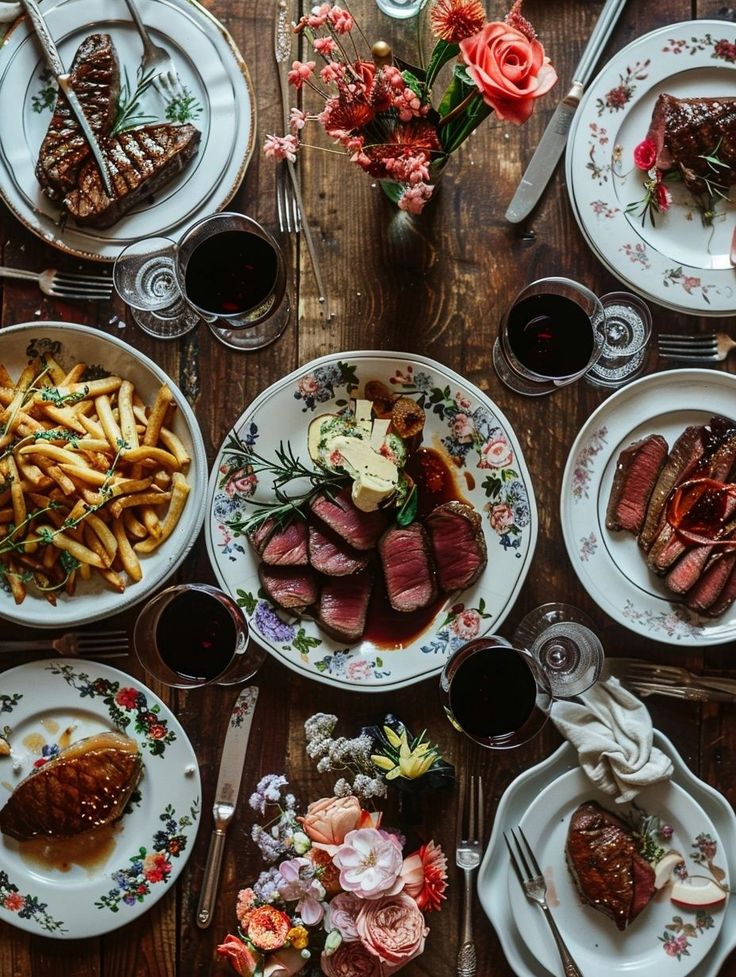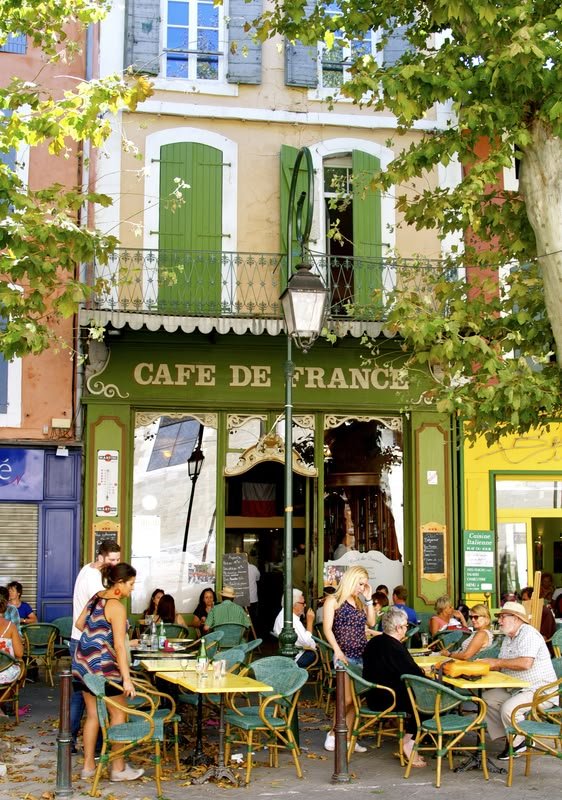Cultural Etiquette: What Not to Do When Visiting France

What Not to Do When Visiting France

Understanding cultural nuances is essential for any traveler seeking to enrich their experiences abroad. When visiting a country as culturally rich and historically significant as France, being aware of local customs and etiquette can greatly enhance your journey. France, with its iconic landmarks, exquisite cuisine, and vibrant arts scene, is a top travel destination for millions each year. However, to truly appreciate and respect the French way of life, it’s crucial to be mindful of certain cultural etiquettes. From dining manners to social interactions, knowing what not to do can prevent misunderstandings and ensure a more enjoyable visit. This guide will delve into the key areas of cultural etiquette to consider when exploring the beautiful landscapes and bustling cities of France.
Dining Etiquette
Table Manners in France
Dining in France is not just about enjoying exquisite cuisine; it’s a cultural experience that reflects the country’s rich heritage. Understanding French table manners is crucial for anyone looking to immerse themselves in the local culture. One of the most notable aspects of dining etiquette in France is the importance of keeping your hands visible on the table during meals. Unlike in some cultures where resting your hands on your lap is considered polite, in France, it’s customary to keep your wrists on the edge of the table. This practice is rooted in historical traditions and is seen as a sign of openness and engagement.
When it comes to handling utensils, the French have a specific way of doing things. The fork is typically held in the left hand and the knife in the right, with both utensils used throughout the meal. It’s important to remember that switching utensils between hands is generally frowned upon. Additionally, bread plays a significant role in French dining. Instead of placing it on your plate, it’s customary to rest it directly on the tablecloth. Bread is often used to accompany the meal rather than as an appetizer, and tearing off small pieces is preferred over biting directly into it.
Tipping Practices
Understanding tipping practices in France can be a bit perplexing for visitors, especially those accustomed to the tipping norms in other countries. In France, a service charge is typically included in the bill at restaurants, which means that tipping is not obligatory. This service charge, known as “service compris,” usually accounts for about 15% of the total bill. However, leaving a small additional tip is appreciated if you feel the service was exceptional.
When deciding how much extra to tip, consider rounding up the bill to the nearest euro or leaving a few coins. For instance, if your bill is €47, you might leave €50. In more upscale establishments, leaving a 5-10% tip is considered generous. It’s important to note that tipping is more common in tourist-heavy areas, and locals may not tip as frequently. Understanding these nuances can help you navigate dining experiences with confidence and respect for local customs.
Social Interactions During Meals

Meals in France are often seen as social events, providing an opportunity to engage in meaningful conversations. When dining with others, it’s customary to wait for the host to start the meal before beginning to eat. Engaging in light conversation is encouraged, but it’s important to avoid controversial topics such as politics or religion, especially if you’re not familiar with the views of your dining companions.
Wine is an integral part of French dining culture, and understanding wine etiquette can enhance your dining experience. When toasting, it’s customary to make eye contact with each person at the table and say “Santé” or “À votre santé,” which means “to your health.” It’s also important to wait for everyone to be served before taking a sip. By observing these social customs, you can enjoy a more authentic and respectful dining experience in France.
Social and Communication Norms
Greetings and Addressing People

In France, greetings are an essential part of social interactions and can set the tone for your entire encounter. Understanding the correct forms of greeting based on the setting is crucial. In formal situations, a handshake is the standard greeting, accompanied by a polite “Bonjour” (good day) or “Bonsoir” (good evening), depending on the time of day. In more informal settings, especially among friends and family, the “bise” or cheek kiss is common. This involves lightly touching cheeks and making a kissing sound, usually twice, but this can vary by region.
Addressing people correctly is also important in French culture. Using titles and surnames is a sign of respect, particularly in formal or business travel contexts. When meeting someone for the first time, it’s customary to use “Monsieur” or “Madame” followed by their last name. As you become more familiar, they may invite you to use their first name, but it’s best to wait for this invitation. This practice reflects the French emphasis on formality and respect in social interactions.
Conversational Topics to Avoid
While engaging in conversation is encouraged in France, it’s important to be mindful of the topics you choose to discuss. Certain subjects, such as politics and personal finances, are considered sensitive and are best avoided, especially with people you don’t know well. These topics can lead to heated debates or discomfort, which is not conducive to a pleasant social interaction.
Instead, focus on more neutral topics such as travel destinations, art, culture, and food. The French appreciate a good conversation and are often willing to share their insights and experiences. However, it’s important to strike a balance between being inquisitive and respectful. Asking too many personal questions can be seen as intrusive, so it’s best to let the conversation flow naturally and follow the lead of your French counterparts.
Non-Verbal Communication Nuances
Non-verbal communication plays a significant role in French social interactions, and understanding these nuances can help you navigate social settings more effectively. Gestures, for instance, can have different meanings in France compared to other cultures. The “OK” sign, made by forming a circle with your thumb and index finger, is considered a negative gesture in France, often interpreted as meaning “zero” or “worthless.” It’s best to avoid using this gesture to prevent misunderstandings.
Proximity and personal space are also important considerations. The French tend to stand closer to each other during conversations than people from some other cultures might be accustomed to. This is not an invasion of personal space but rather a cultural norm. However, it’s important to be aware of the other person’s comfort level and adjust accordingly. By being mindful of these non-verbal cues, you can communicate more effectively and respectfully in French social settings.
Dress Code and Appearance
Dressing Appropriately for Different Occasions

In France, fashion is not just about clothing; it’s a reflection of the country’s cultural identity and values. Dressing appropriately for different occasions is essential, as it demonstrates respect and understanding of French customs. In casual settings, such as a stroll through a park or a visit to a café, the French tend to favor a smart-casual look. This might include well-fitted jeans, a stylish top, and a blazer or jacket. The key is to look put-together without appearing overly formal.
For more formal occasions, such as dining at a fine restaurant or attending a cultural event, dressing up is expected. Men might wear a suit or a tailored jacket with dress pants, while women might opt for a chic dress or an elegant blouse with a skirt. Attention to detail in appearance is highly valued, and it’s common for the French to pay close attention to the fit and quality of their clothing. This emphasis on detail extends to accessories and grooming, as a polished appearance is seen as a sign of respect for oneself and others.
Footwear Choices and Cultural Impressions
Footwear is an important aspect of French fashion, and the choice of shoes can significantly impact cultural impressions. In public settings, stylish and polished shoes are preferred, as they complement the overall outfit and contribute to a sophisticated appearance. Sneakers, while acceptable in casual settings, should be clean and in good condition. For more formal occasions, leather shoes or elegant heels are appropriate choices.
Casual footwear, such as flip-flops or overly casual sandals, is generally reserved for the beach or poolside. Wearing such footwear in urban settings can be perceived as too informal and may not align with the French appreciation for style and elegance. When planning your travel itinerary, consider packing versatile footwear that can transition from day to night, allowing you to explore various travel destinations in comfort and style.
Accessories and Fashion Customs

Accessories play a significant role in French fashion, often adding a touch of personality and flair to an outfit. Scarves, for instance, are a quintessential French accessory, worn by both men and women. They can be styled in various ways to suit different occasions and are a practical addition to any wardrobe, especially during cooler months. The French are known for their ability to effortlessly incorporate scarves into their outfits, making them a staple in travel photography.
When it comes to hats and other accessories, understanding the appropriate context is important. For example, berets are a classic French accessory, but they are not commonly worn by locals in everyday settings. Instead, they are often associated with traditional or cultural events. Similarly, certain hats may be suitable for outdoor adventures or specific travel destinations but may not be appropriate for formal occasions. By being mindful of these fashion customs, you can blend in seamlessly with the local culture and enhance your overall travel experience.
Conclusion
Respecting cultural etiquette is paramount when visiting France, as it not only enhances your travel experiences but also fosters positive interactions with locals. By understanding and adhering to the nuances of French customs, such as dining etiquette, social norms, and dress codes, travelers can navigate their journey with confidence and ease. These practices are deeply rooted in the country’s rich cultural heritage and reflect the values and traditions that make France a unique and captivating travel destination. Whether you’re embarking on a solo travel experience or enjoying family vacations, being mindful of cultural etiquette can lead to more meaningful connections and a deeper appreciation for the local way of life.
Embracing openness to learning and adapting to new cultural environments is essential for a truly enriching travel journey. Each travel destination offers its own set of customs and traditions, and being receptive to these differences can broaden your perspective and enhance your overall travel experience. By approaching your travels with curiosity and respect, you can gain valuable insights into the culture and history of the places you visit. This mindset not only enriches your personal growth but also contributes to more sustainable travel practices, as it encourages a deeper understanding and appreciation of the world’s diverse cultures. As you plan your next adventure, consider the importance of cultural etiquette and the positive impact it can have on your journey.